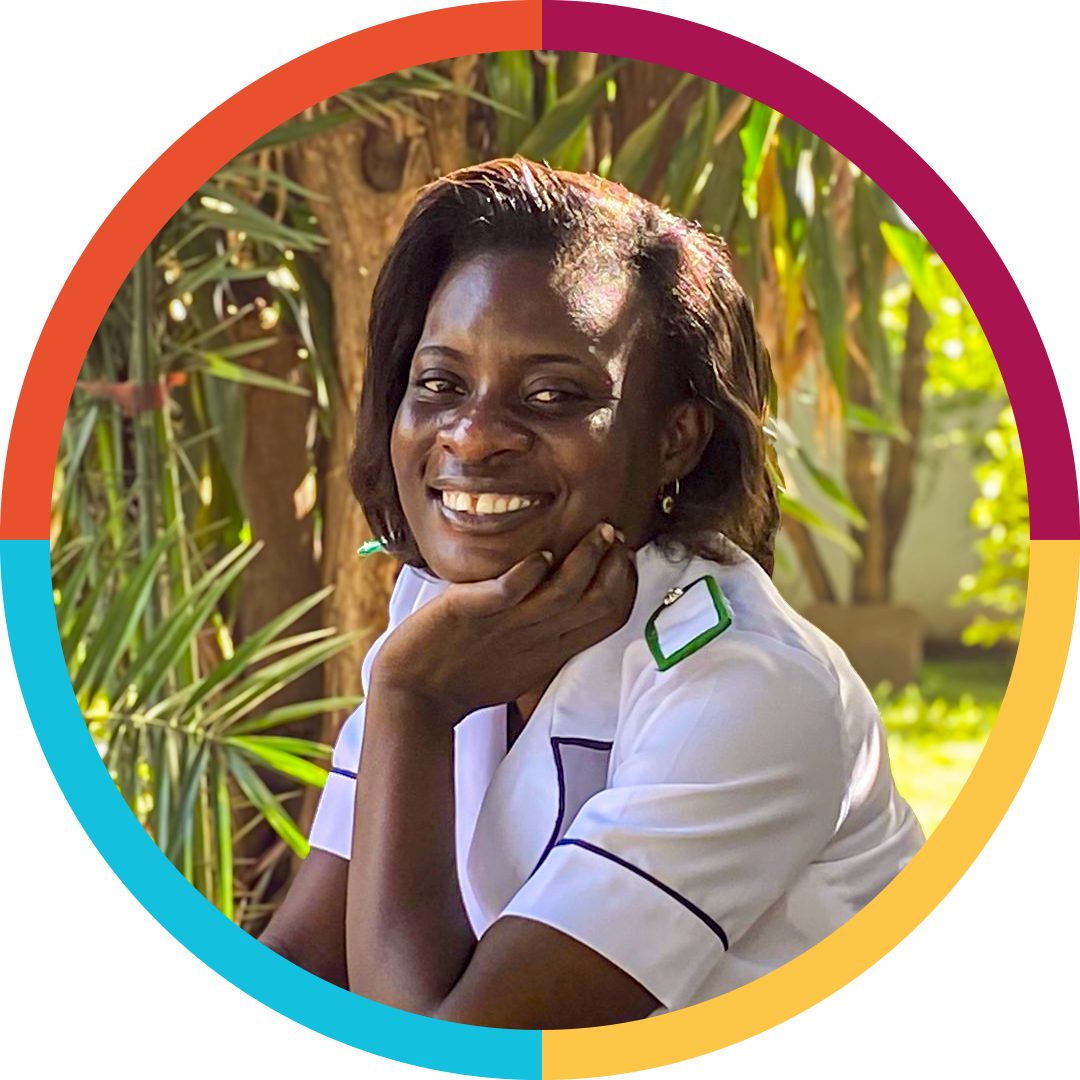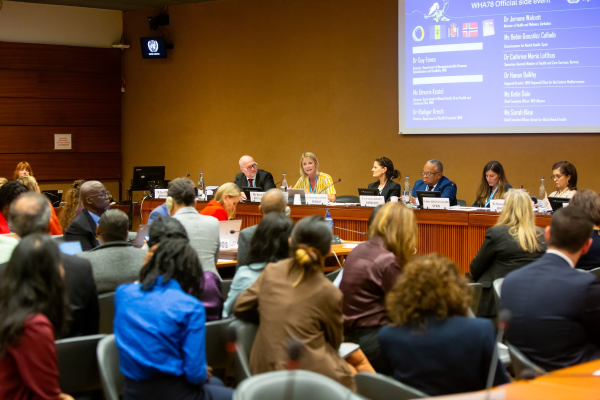Thanks to relentless efforts to respond to the NCD emergency, governments worldwide are making progress in addressing NCDs, but challenges continue rising globally. That was the message heard at Equity and integration: transforming lives and livelihoods through leadership and action on NCDs and the promotion of mental health and well-being, a side-event of the 78 World Health Assembly on 21 May co-organised by Barbados, Norway, Spain, NCD Alliance and United for Global Mental Health.
“While we fight NCDs—dedicating more financing to health, managing and expanding primary health care (PHC), etc.—we also need to prepare for climate issues so that we are more resilient,” said Dr Jerome Walcott, Minister of Health and Wellness of Barbados, at the event.
Barbados continues building on its multisectoral response to the risks posed by unhealthy diets by, for example increasing the tax on sugar-sweetened beverages (SSBs) from 10% to 20%, a move opposed by industry. Yet at the same time, the government must also rely on industry for the country’s imports, which are essential to the island nation that produces little of its own products, added Walcott in his keynote address.
"Spain has made significant advances in providing mental health services, many of them via PHC, the result of a 700-million Euro infusion based on the recommendations of a recent commission on mental health", said Belén González Callado, the country’s Commissioner for Mental Health.
New policies have also been developed, including the 2025-2027 national mental health plan and a national suicide prevention plan. On the ground, there has been a shift from institutionalisation to community-based programmes and a redefining of roles within the health system, so that general practitioners, nurses, and psychologists are more likely to work in multidisciplinary teams, added González Callado.
Norway is working to incorporate some of the lessons learned during COVID-19, when higher admissions to healthcare facilities and increased mortality required closer surveillance, said Cathrine Marie Lofthus, Secretary-General of the Ministry of Health and Care Services.
Increased use of the “wealth of data” available to the government could play a major role. This includes national information available from the Institute of Public Health as well as disaggregated sub-national data collected by local levels of government.
Current challenges in the Eastern Mediterranean Region are enormous, said Dr Hanan Balkhy, Regional Director of WHO EMRO. She pointed to Gaza and Sudan, where conflicts are ongoing, and Afghanistan, where some areas lack even PHC. “When we talk about NCDs in these contexts, we need to consider safety, security, threats to healthcare workers.”
In Gaza hundreds of people are sharing a single bathroom—They have no time to think about mental health, controlling hypertension, or breast cancer screening, their priorities are eating and showering. In these situations, added Balkhy, maintaining some PHC is essential. She pointed out Jordan, which has developed a model for nurses and other HCWs to deliver screening in refugee camps.
No matter the humanitarian situation, mental health support for people living with NCDs can be a lifesaver, said Sarah Kline, Chief Executive Officer, United for Global Mental Health. “I agree that people need to shower, they need to have food, but children should also smile; the challenge is how to engage with them?
It is imperative that the legal rights of people living with mental health conditions are respected, she said adding that 80% of mental health budgets are used to lock people up. “Where attempting suicide is a crime, you won’t get engagement,” said Kline.
NCD Alliance CEO Katie Dain explained that the 4th High-Level Meeting on NCDs and Mental Health (HLM4) is “a crucial opportunity to ensure that community engagement – engaging civil society, people with lived experience, youth and community-led responses – is at the heart of the NCD response. This is one of our five HLM4 priorities."
“Since the last HLM in 2018… a lot of progress has been made,” added Dain, including the WHO framework on meaningful involvement of people living with NCDs developed in 2023. “And yet when you look at the Zero Draft political declaration, it is almost silent on community engagement—it seems to have ignored these developments, makes very few references to them and has no concrete political commitments.”
With WHA78 underway and the HLM4 in September fast approaching, the message from Geneva is clear: it’s time to Act on NCDs. In the months ahead, the Global Week for Action will serve as a key mobilisation moment to amplify civil society voices, drive political will, and press for meaningful commitments.




